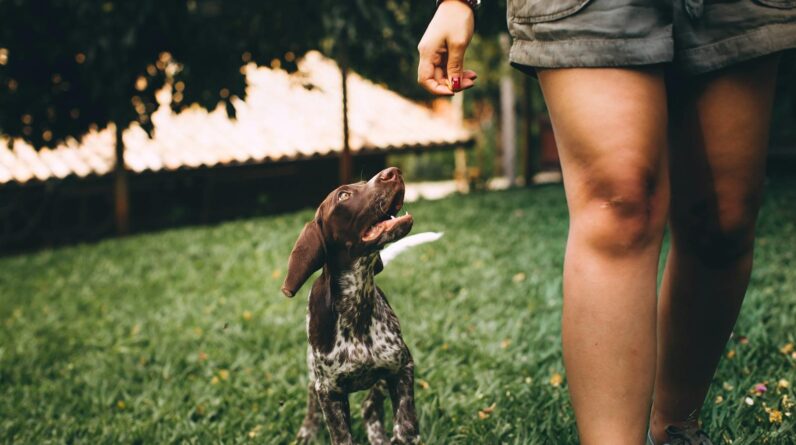
Allergies in Dogs: The Basic Stuff You Should Know
Hey there, dog lovers! Do you have a furry friend at home? If you do, you’ve probably noticed that sometimes they scratch a lot, sneeze, or even get red skin. Guess what? Just like us, dogs can have allergies too! Let’s check out what you need to know about allergies in dogs, so you can help your pup feel better.
What Are Dog Allergies Anyway?
Allergies happen when your dog’s body thinks something like dust, pollen, or food is an invader and tries to fight it. This makes your dog feel itchy or sick. Think of it like your dog’s body sounding a false alarm, and the police and firefighters (your dog’s immune system) come rushing in for no real reason.
Signs Your Dog Might Have Allergies
Dogs can’t tell us when they feel bad, but they show us in other ways. Look for signs like scratching a lot, licking their paws, or getting ear infections often. Some dogs sneeze, have runny eyes, or even throw up or have poo problems if they eat something they’re allergic to.
The Most Common Allergies in Dogs
Dogs can be allergic to all sorts of things. Here are a few big ones:
- Skin Allergies: These are super common. Things like flea bites, stuff in the air like pollen, and even things they touch can make a dog’s skin angry and itchy.
- Food Allergies: Sometimes it’s what they eat that bugs them. It can be a certain kind of meat, dairy, or something else in their dog food.
- Environmental Allergies: Dust, mold, and pollen are just like tiny ninjas attacking your dog. You can’t see them, but they can sure make your pup miserable.
How to Figure Out What’s Bugging Your Dog
To help your furry buddy, you’ve got to play detective. A vet is like a super special detective that can help figure out what your dog is allergic to. They might do tests, like skin tests or blood tests, to find the bad guys causing all the itchiness. They might also tell you to try different foods or make changes in your house to see if your dog stops scratching.
Treating Your Dog’s Allergies
Once you know what’s bothering your dog, you can start doing stuff to help them. Here are a few ways to make your dog feel better:
- Medicines: A vet might give your dog medicine. Some medicines stop the itchy feelings, and others work like a shield to protect your dog from the allergies.
- Skin Care: Special shampoos or creams can soothe your dog’s skin and make them less itchy.
- Food Changes: If food is the problem, the vet will help you find food that doesn’t make your dog sick. It’s like being a detective in the kitchen!
- Cleaning Up: Keeping your home clean can kick those tiny ninjas like dust and pollen out of your house, so your dog feels better.
What You Can Do Every Day
There are simple things you can do at home to help your dog if they have allergies. Try giving your dog baths with gentle shampoo to wash away any allergens. Washing their bed and toys often also helps. And remember to keep your home as dust-free as you can.
If your dog’s allergies come from outside, wiping their paws and fur after walks is a great idea. Think of it like leaving the mud outside so it doesn’t mess up the clean floors, but for allergies!
Foods to Watch Out For
You might not know this, but some foods are more likely to cause allergies in dogs. Things like beef, chicken, eggs, corn, wheat, and soy can be problems for some pups. If you see your dog getting itchy after meals, that’s a clue. They might need different food without those things in it.
Living with Allergies
Allergies can be a pain, but with some help, your dog can still have a happy life. Working with your vet, keeping your home clean, and paying attention to your dog’s food and skin care can do wonders. It takes a little work, but it’s all about making sure your furry friend feels good. So keep an eye out for those signs, and don’t forget that a vet is your best partner in keeping your dog healthy and allergy-free. With a little love and care, your dog can enjoy every day, even with allergies. And that’s pretty awesome for both of you.
What are the most common allergens that affect dogs?
Dogs can be allergic to a variety of things. Some of the most common allergens include pollen, mold, dust mites, flea bites, and certain foods. Seasonal allergies, much like in humans, can also cause discomfort in dogs, often leading to itching and other symptoms.
It’s not just the outdoors that can cause issues; indoor allergens like perfumes, cleaning products, or even some fabrics might trigger a reaction. If you notice your dog scratching excessively or showing signs of discomfort, allergens could be the culprits.
How can I tell if my dog has allergies?
Signs that your dog may have allergies include consistent itching, red or inflamed skin, sneezing, runny eyes, or ear infections. You might also see them licking their paws more than usual. These symptoms can suggest an allergic reaction, especially if they change with seasons or environments.
If you suspect an allergy, keep notes on when the symptoms occur and discuss them with your vet. They might recommend an allergy test or suggest changes in diet or environment to help identify the cause and best course of action.
Are there any home remedies for dog allergies?
Yes, there are several home remedies that may help relieve your dog’s allergy symptoms. Frequent bathing with hypoallergenic shampoos can remove allergens from the skin and coat. Regularly washing your dog’s bedding and any favorite soft toys can also reduce exposure to allergens.
Omega-3 fatty acids found in fish oil supplements can help improve skin health, potentially reducing irritation. However, it’s important to consult your vet before starting any home treatment to make sure it’s suitable for your pet’s specific needs and conditions.
Can dogs grow out of allergies, or are they lifelong?
Dogs may not necessarily ‘grow out’ of allergies, but symptoms can change over time. Effective management and changes in environment can make a big difference. Sometimes, an allergy may seem less prevalent as the dog’s immune system becomes less sensitive to that particular allergen with appropriate interventions.
Even so, in many cases, allergies will require lifelong management. Working with a vet to identify triggers and develop a care plan tailored to your dog’s needs is essential. This might include medication, dietary changes, or lifestyle adjustments to reduce exposure to allergens.
Should I change my dog’s diet if they have allergies?
A dietary change can be beneficial for dogs with food allergies. Identifying the specific ingredient they’re allergic to is key, which often involves a process of elimination under veterinary guidance. Once you know the allergen, you can avoid it by selecting hypoallergenic or limited ingredient diets.
Not all allergies in dogs are food-related, though, so don’t change your pet’s diet without getting confirmation from a vet. Incorrectly altering their diet could cause more harm than good, especially if you inadvertently remove something they really need nutritionally.
Key Takeaways
- Dog allergies are pretty common; it’s not just us humans sniffling when spring rolls around.
- Signs that Fido might be allergic include crazy scratching, sneezing, and even some tummy troubles.
- Allergies in dogs can be triggered by a bunch of stuff, like pollen, dust, certain foods, or flea bites.
- Kicking those allergy symptoms to the curb can mean anything from special diets to medications that your vet has to prescribe.
- It’s super important to get to the vet if you think your pup has allergies. They’re the pros and can help pinpoint exactly what’s bugging your dog.
- Preventing allergies isn’t always possible, but keeping your home clean and staying on top of flea control helps a lot.
- You might have to play detective with your dog’s diet because food allergies can be sneaky and need an elimination diet to sort out.
- If your dog is dealing with allergies, quick action can reduce discomfort and prevent more serious issues like infections from scratching too much.
- Remember, every dog is different, so what works for one might not work for another—customizing the approach is key.
Final Thoughts
Dog allergies are more common than we might think, and they can make our furry friends pretty miserable. Whether it’s itching from fleas, sneezing from dust, or tummy troubles from certain foods, allergies can affect our pups in different ways. The key is to watch for signs like scratching, licking, or digestive problems, so you can catch them early.
Remember, not all itchies are allergies—sometimes it’s just a flea problem. But if it’s more than that, your vet can help you figure out the cause, whether it’s something in their food or a sneaky environmental allergen. Treatments range from simple diet changes to medications or allergy shots.
It’s a team effort to keep our dogs happy and healthy, so staying alert to symptoms is crucial. With a bit of detective work and help from the vet, we can manage their allergies and have them back to their tail-wagging selves in no time.







